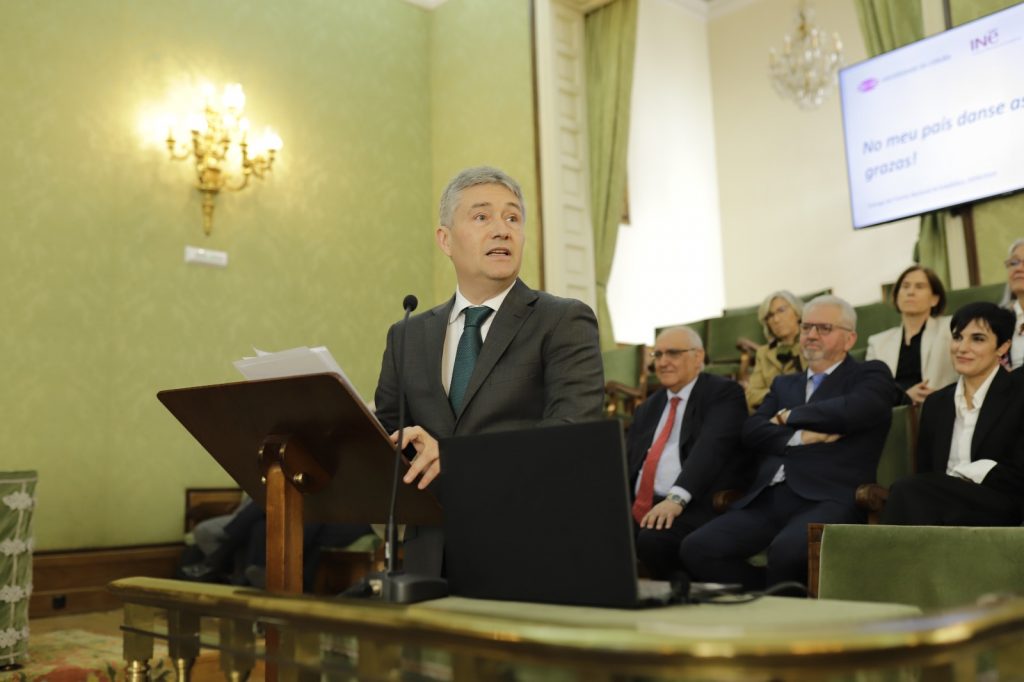
Ricardo Cao Receives National Statistics Award Granted by INE
A Coruña, April 29, 2024 – Ricardo Cao, rector and professor at the University of A Coruña and a researcher at CITIC, received the National Statistics Award this morning, granted by the National Institute of Statistics (INE) in October 2023.
At a ceremony held in Madrid, Cao received the award from Elena Manzanera Díaz, President of the INE, and Israel Arroyo Martínez, Secretary of State for Economy and Business Support. The award recognizes his career in statistical research at both national and international levels, as well as his experience in applying this branch of mathematics to social and economic projects.
Ricardo Cao began his speech by quoting Manuel Rivas: “No meu país danse as grazas!” (In my country they give thanks). This way, he took the opportunity to thank the INE for establishing this award in 2020, all the teams he has collaborated with, those who supported his candidacy, and his family. He also mentioned the support received from CITIC, his colleagues from the research group on Modeling, Optimization, and Statistical Inference (MODES), the Mixed Research Center of the University of A Coruña, and the company Navantia.
In his speech, he outlined what he considers to be some of the main challenges for Statistics in the coming years. First, the transition from Statistics to Data Science. According to his words, this involves “the shift from a science that deals with problems associated with the design of data collection, cleaning, and analysis procedures to one where data storage, processing, and structuring or unstructuring gain special importance.”
Another challenge is “the reduction of biases, particularly relevant in the context of Big Data. In such situations, these datasets are often obtained through methods that do not naturally represent the population from which they originate.” Thus, improving these techniques will play a crucial role in the evolution of this science.
Ricardo Cao made special reference to the significance of the COVIDBENS project, describing it as “one of the most fascinating I have encountered,” in which more than two dozen researchers collaborated with a common goal: combating the pandemic through knowledge gained from the analysis of data from PCR and genomic sequencing of samples obtained from wastewater. In an interview published by CITIC in mid-November, Cao mentioned this project, stating that “it allowed us to work on finding more efficient statistical models for wastewater-based epidemiology, which should not be forgotten, as they proved very useful and could continue to be used as is being done in other EU countries and applied to diseases like the flu.”





